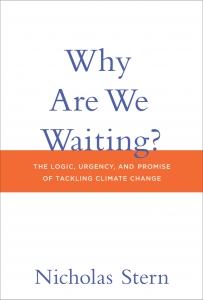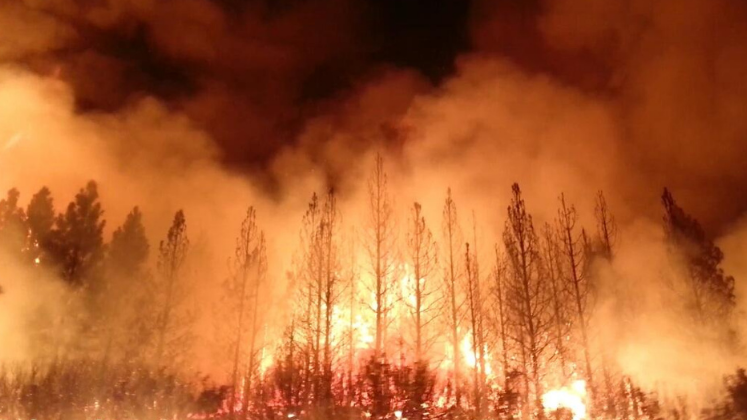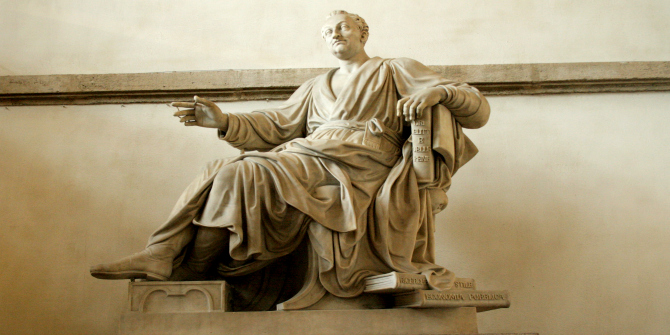In Why Are We Waiting?: The Logic, Urgency and Promise of Tackling Climate Change, Nicholas Stern expands upon the 2006 Stern Review to offer a timely argument in favour of global action on climate change. As Stern goes beyond economic analysis to discuss the scientific, political, ethical and practical aspects of forging pathways to international cooperation, Chandni Singh welcomes the book as a valuable contribution to the task of tackling the twin challenges of this century: global poverty and climate change.
Why Are We Waiting? The Logic, Urgency and Promise of Tackling Climate Change. Nicholas Stern. MIT Press. 2015.
 In 2006, the Stern Review was published. It fast became the most reliable and extensive analysis of the economic repercussions of climate change on human systems. To those working on climate change, Professor Lord Nicholas Stern is a familiar name. He uses the insights gained from being in positions of influence and an insider to climate change discussions – Stern is a member of the United Nations Secretary General’s High-Level Advisory Group on Climate Financing and Co-Chair of the Global Commission on the Economy and Climate – to put together a timely and definitive argument for global action on climate change.
In 2006, the Stern Review was published. It fast became the most reliable and extensive analysis of the economic repercussions of climate change on human systems. To those working on climate change, Professor Lord Nicholas Stern is a familiar name. He uses the insights gained from being in positions of influence and an insider to climate change discussions – Stern is a member of the United Nations Secretary General’s High-Level Advisory Group on Climate Financing and Co-Chair of the Global Commission on the Economy and Climate – to put together a timely and definitive argument for global action on climate change.
Why Are We Waiting? The Logic, Urgency and Promise of Tackling Climate Change is adapted from the Lionel Robbins Memorial Lectures that Stern gave in 2012, which take forward the analysis and perspectives presented in the Stern Review. Against the fast-changing backdrop of climate change negotiations, advancements in scientific understandings of how the climatic system works and shifts in economic activity from developed to developing countries, Why Are We Waiting is an astute look at the state of climate science (Part I); the policy, economic and ethical arguments that shape climate action (Part II); and cases of international interactions and cooperation in climate change action (Part III). While the book has a strong focus on economics, which Stern states upfront, it is written for a wider audience and will appeal to a broad spectrum of readers from policy-makers and academics to donors and practitioners working on climate change.
The book discusses ‘the wicked problem of climate change’ through three axes of inquiry: the scientific; the political and the ethical; and the practical. Its novelty lies in the fact that it goes beyond an economic analysis of the risks and costs of inaction to discuss trajectories of change by charting potential pathways for international cooperation.
Part I sets the stage by compiling what climate science has to say about the extent of risk that climate change poses. While it is a good introduction for lay readers, those engaged with climate science research or practice may not find this particularly new. However, it is in Part II of the book that Stern leverages his expertise in economics and draws on various discourses of moral philosophy to make a powerful economic and ethical argument about the cost of inaction on climate change. In so doing, he argues that those who make and influence climate policy must act in relation to (1) the nature, scale and urgency of the climate change problem; (2) the feasibility and effectiveness of the proposed solutions; and (3) existing and potential institutional measures that can facilitate these solutions.
 Image Credit: Lakebed (Keith)
Image Credit: Lakebed (Keith)
In Chapter Two, Stern looks at different sectors and discusses how technological advances can help the transition from a low-carbon pathway without compromising national development agendas and concerns. However, while new approaches such as climate smart agriculture are discussed as ways to meet adaptation and mitigation goals, there is insufficient discussion of the larger political economy that often disallows the marginalised or those most vulnerable to climate change to reap the benefits of innovative approaches. This ‘technophilic optimism’ argues that technological innovation will usher in change that is widespread and fast enough to mitigate and adapt to climate change impacts. Yet it fails to acknowledge that in spite of technological advancements, factors such as the receptivity of national governments, differing institutional architecture in different contexts, differential capacity to access and use the innovation and socio-cultural norms may impede adoption. Although Stern does note that ‘change does not, however, come from technology alone. Other economic, philosophical, and political factors may be important too, and some might argue, would be logically prior’ (93), a deeper discussion of how policies are mediated, and often thwarted, by the aforementioned factors would be welcome. The sections on the roles of values (how our notions of responsibility regulate behaviour) or community and networks in shaping policies for dynamic change are particularly thin (half to one page each in a book of 325 pages) in comparison to the pages devoted to the role of financial institutions in addressing the challenges that climate change poses.
Chapter Six draws on multiple discourses of moral philosophy to make an argument for fast and robust climate change action. The discussion is refreshing because it critiques the consequentialist viewpoint of climate change impacts that economists take (evaluating policy or action based on its consequences), and argues that non-consequentialist approaches that appeal to ideas of morality, ethics, justice and rights strengthen the case for urgent climate change action. Stern acknowledges that his arguments draw lopsidedly from European traditions of ethical thought and this is a great loss since Indian philosophy (amongst others) has constructs such as karma (action), dharma (way of righteousness) and nyaya (justice) that would make the argument for climate change action more plural.
In the concluding chapter, Stern summarises why, in spite of ever-improving scientific understanding about the risks and impacts of climate change and the powerful ethical argument for action, the planning and implementation of the climate agenda is not at the scale or urgency required. He finds that inaction stems out of analytical issues around arguments by climate deniers, inadequate communication of the magnitude of the climate change problem, psychological and socio-cultural impediments to action and structural and institutional barriers, such as the political economy of the climate change issue (especially in a context where some countries hold disproportionate influence in international agreements). Citing past examples of social change from dissuasion of drink-driving to successful HIV/AIDS awareness campaigns, Stern argues that along with good science, strong institutional mechanisms and international cooperation, social pressure and inspired leadership can help tackle the twin challenges of the 21st century: global poverty and climate change.
As a researcher working on one end of the climate change problem – from the view of farmers and other local actors – the book’s most interesting insights were, for me, from the top of the pyramid: that of international policy and national economic compulsions and development goals. Against the backdrop of the Paris Conference of Parties (COP21) in December, the analysis of climate governance frameworks at the international, national and sub-national level (found in Part III) and the call for urgent action in Why Are We Waiting? are timely and pertinent.
Chandni Singh is a postdoctoral researcher at the Indian Institute of Human Settlements, Bangalore. She completed her PhD in Rural Livelihoods at the University of Reading, UK and her Masters in Natural Resource Management at TERI University, India. Chandni has worked with several NGOs on projects related to climate change adaptation, livelihood diversification and community-based resource management. She blogs at Village Vignettes and tweets @_chandnisingh. Read more reviews by Chandni Singh.
Note: This review gives the views of the author, and not the position of the LSE Review of Books blog, or of the London School of Economics.








2 Comments